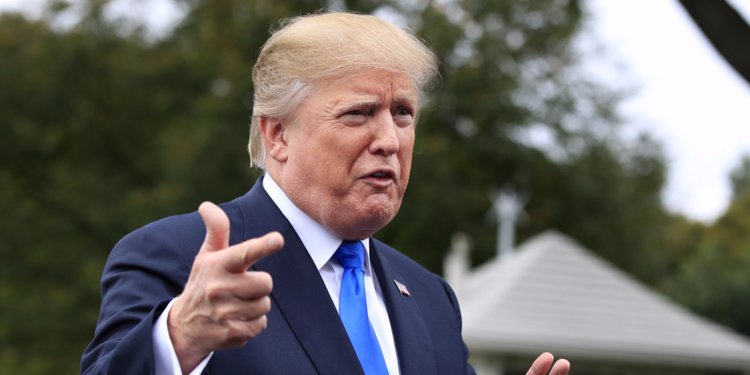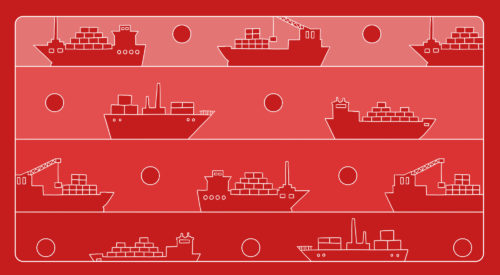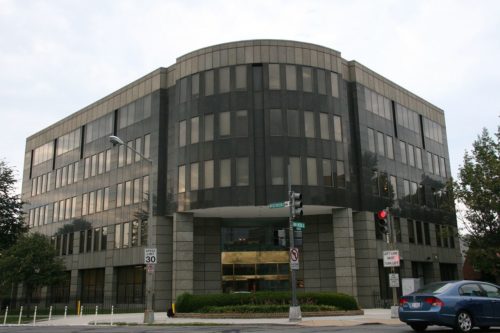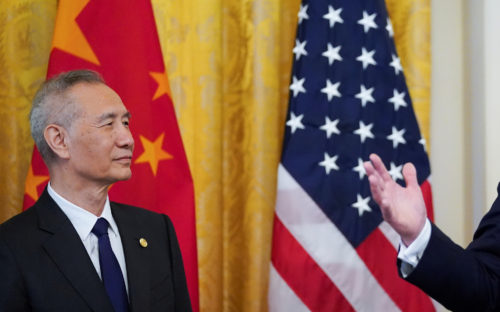Team Trump desperately seeking escape hatch?

The U.S.-China Business Council has published a report analyzing export data from 265 congressional districts. It concludes that “cities and states across the US, as well as businesses that pay taxes and employ people there, continue to suffer, especially from loss of sales as a result of punitive tariffs.”
Which is perhaps why “President Donald Trump’s top advisers are rushing to find an escape hatch for a series of tariff increases in the coming months, worried about the potential for further economic damage,” according to Politico.
Bilateral tensions are slightly lower today. This morning, Trump tweeted: “It is expected that China will be buying large amounts of our agricultural products!”
It is expected that China will be buying large amounts of our agricultural products!
— Donald J. Trump (@realDonaldTrump) September 12, 2019
China did indeed place some orders. Per Reuters:
On Thursday, China importers bought at least 10 cargoes, or 600,000 tonnes of U.S. soybeans for October-December shipment, the country’s most significant purchases since at least June, U.S. traders with direct knowledge of the deals said.
That came after U.S. President Donald Trump on Wednesday delayed an increase in tariffs on Chinese goods by two weeks and China exempted some U.S. drugs and other goods from tariffs.
Beijing called the American tariff delay an act of “goodwill,” reports the South China Morning Post. Even the nationalist rag Global Times welcomed the move with an editorial featured prominently on its Chinese-language home page.
News from other fronts of the U.S.-China techno-trade war:
“An insurance company run by the Chinese government is stepping in to support Chinese exporters, providing low cost coverage and chasing down U.S. importers unwilling or unable to pay mounting tariffs,” according to Reuters.
China Export & Credit Insurance Corp, known as Sinosure, has aggressively increased its insurance of Chinese exporters since last year, according to company sources and public data… In some cases, local governments are even paying the premiums.
“China is looking to narrow the scope of its negotiations with the U.S. to only trade matters, putting thornier national-security issues on a separate track in a bid to break deadlocked talks,” says the Wall Street Journal (paywall), citing “people familiar with the plan.”
“The Medical Imaging and Technology Alliance has estimated new tariffs will cost the U.S.’s medical-technology industry about $138 million,” reports Fox Business in a piece profiling a medical-device company that has been hard hit.
Billionaire financier George Soros praised Trump in a Wall Street Journal article, calling his “China policy…a great achievement,” and even going so far as to describe it as “coherent.” He also cautioned Trump against reversing the ban on U.S. companies selling components to Huawei, which he describes as “crucial” for American companies to achieve — or in his view, maintain — the advantage in 5G technology.
The U.S. is pressuring Israel to rethink investment from China, says Bloomberg (porous paywall):
China today is Israel’s second-largest trading partner after the U.S., responsible for $11.5 billion in annual transactions…
“Israel and Israeli companies are quickly coming to the realization that it’s going to be difficult to sustain business as usual in work with China while keeping the United States as the primary partner.” For the U.S., Israel may be the ultimate test of its global influence on trade. If the country doesn’t follow America’s China strategy, who will?






